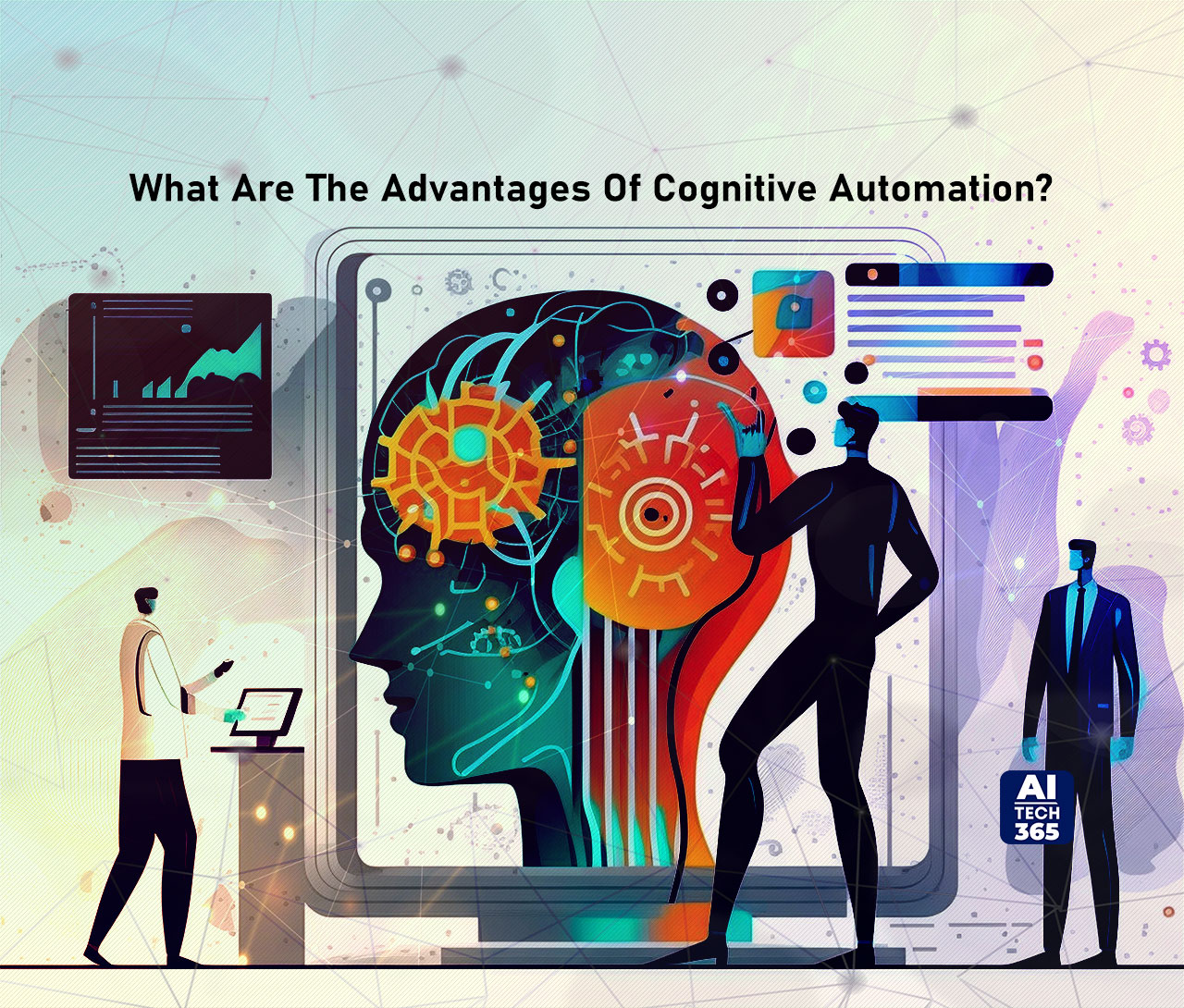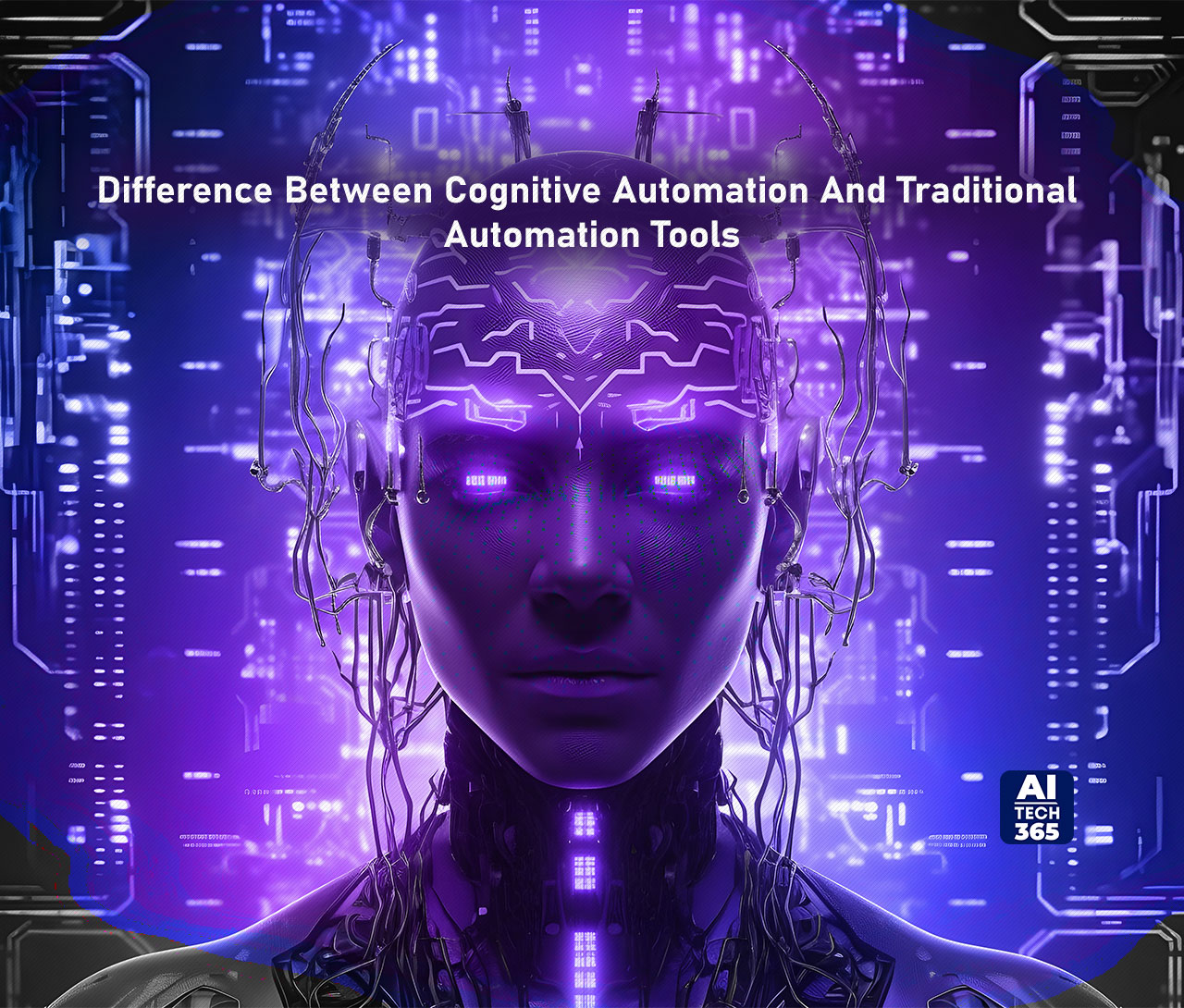In this era of digital transformation, cognitive automation offers a new frontier of possibilities by combining artificial intelligence, machine learning, and robotic process automation. Through this blog, we will delve into the various applications and benefits of cognitive automation across industries, from enhancing operational efficiency and improving decision-making to delivering exceptional customer experiences.
What Is Cognitive Automation?
Cognitive automation refers to utilizing Machine Learning technologies to automate tasks traditionally performed manually. This approach enables businesses to enhance operational efficiency beyond current automation capabilities. According to McKinsey, adopting automation tools allows businesses to automate 50-70% of tasks, reduce data processing time by 50-60%, lower annual labor costs by 20-30%, and achieve triple-digit ROI.
Some of cognitive automation examples include Intelligent Document Processing, Intelligent Virtual Agents, predictive analytics, process automation, intelligent data extraction, and much more.
What Are The Advantages Of Cognitive Automation? 
Explore the transformative benefits of cognitive automation for businesses:
- Elevated Operational Efficiency: It introduces human-like intelligence, enabling automation beyond mere replication of tasks, leveraging vast data resources for enhanced performance.
- Seamless Management of Unstructured Data: Excelling in processing diverse data types like invoices and customer interactions, categorizes and analyzes data effectively, enabling comprehensive automation.
- Rapid Deployment with Pre-Trained Solutions: Pre-trained automation solutions require minimal data and expertise for deployment, accelerating implementation and enabling rapid operationalization.
- Synergistic AI Integration: By incorporating AI technologies like natural language processing and image recognition, automation augments existing automation methods, broadening capabilities and enhancing overall performance.
- Reliable Decision Support through Data Analysis: Leveraging robust data processing capabilities, cognitive systems deliver accurate analysis, facilitating informed decision-making with thorough data insights.
- Streamlined Operations for Enhanced Efficiency: Automating complex, non-routine tasks, cognitive automation optimizes processes, driving efficiency and productivity gains across organizational functions.
Difference Between Cognitive Automation And Traditional Automation Tools
Cognitive automation offers a dynamic approach that surpasses the limitations of traditional automation tools like Robotic Process Automation (RPA) and integration tools (iPaaS). While RPA excels at automating repetitive tasks within a strict rule set, it struggles with contextual analysis and handling unstructured data. Unlike traditional automation, cognitive leverages Machine Learning (ML) and Artificial Intelligence (AI) to understand and adapt to complex scenarios, bridging the gap where RPA falls short. By integrating cognitive capabilities, businesses can achieve more nuanced decision-making and efficiently process unstructured data, unlocking new levels of automation and efficiency.
Cognitive Automation Vs RPA
Here’s a breakdown of the key differences between cognitive automation and RPA:
Ease & Usability:
- RPA simplifies tasks by handling repetitive, rules-based actions typically performed by humans.
- Cognitive mimics human thinking processes to analyze complex data with precision and consistency.
Scope:
- RPA operates on structured data for routine tasks like responding to inquiries and managing transactions.
- Cognitive tackles unstructured data and non-routine tasks, enhancing decision-making with AI techniques like natural language processing.
Methodology & Processing Capabilities:
- RPA relies on straightforward technologies and ‘if-then’ logic, requiring minimal coding and implementation effort.
- Cognitive employs advanced tools such as machine learning and text analytics to process complex data and improve decision-making.=
Benefits:
- RPA enhances productivity by automating repetitive tasks, allowing employees to focus on higher-value work and fostering innovation.
- Automation offers pre-trained solutions, requires less data input, and supplements human analytical capabilities without extensive support from specialists. It continuously learns and adapts to new information, contributing to ongoing improvement.
Applications of Cognitive Automation
The uses of cognitive automation in AI encompass a wide range of applications where AI can enhance data capture and automate complex decision-making processes. Some examples include:
- Consolidating Product Data: Automatically categorizing product data from multiple sources into a unified structured dataset.
- Invoice Processing: Extracting information from invoices with varying formats, standardizing it, and loading it into accounting systems.
- Customer Support: Automatically retrieving customer data during service calls using speech recognition and natural language understanding.
- Personalized Recommendations: Utilizing AI recommendation engines to gather insights on customer preferences and streamline the customer experience.
What are the Challenges Associated with Cognitive Automation?
The challenges of automation encompass several areas that businesses must navigate to maximize its benefits:
- Customization and Integration: Each enterprise requires tailored customization and integration efforts for cognitive automation, especially for more complex decision-making tasks, leading to longer implementation times and potential hurdles.
- Return on Investment (ROI): Achieving positive ROI with automation may take longer due to the need for extensive planning, customization, and ongoing iteration.
- Expertise Shortage: Finding professionals with expertise in autonomous business systems and automation can be challenging, limiting access to specialized skills.
- Algorithm Bias: Businesses must vet AI algorithms for bias to ensure fair and unbiased decision-making processes.
- Cost Management: Automation has the potential to scale costs rapidly if not managed effectively, necessitating careful monitoring and control.
- Security Concerns: Intelligent bots accessing a wider range of IT systems and workflows may introduce new security vulnerabilities, requiring robust security measures to mitigate risks.
- Privacy and Compliance: There is a risk of privacy or compliance breaches when handling personally identifiable data within new workflows, highlighting the importance of stringent privacy and compliance protocols.
Final Takeaway
Cognitive automation has the potential to revolutionize businesses by improving decision-making, increasing operational efficiency, enhancing the customer experience, streamlining processes, optimizing supply chain management, improving data analysis, and seamlessly integrating with other AI technologies. By leveraging cognitive capabilities, businesses can unlock new levels of productivity, agility, and competitiveness. As companies embrace cognitive automation, they can automate routine tasks, process unstructured data, and make data-driven decisions, leading to improved business outcomes and a competitive edge in today’s rapidly evolving digital landscape.



